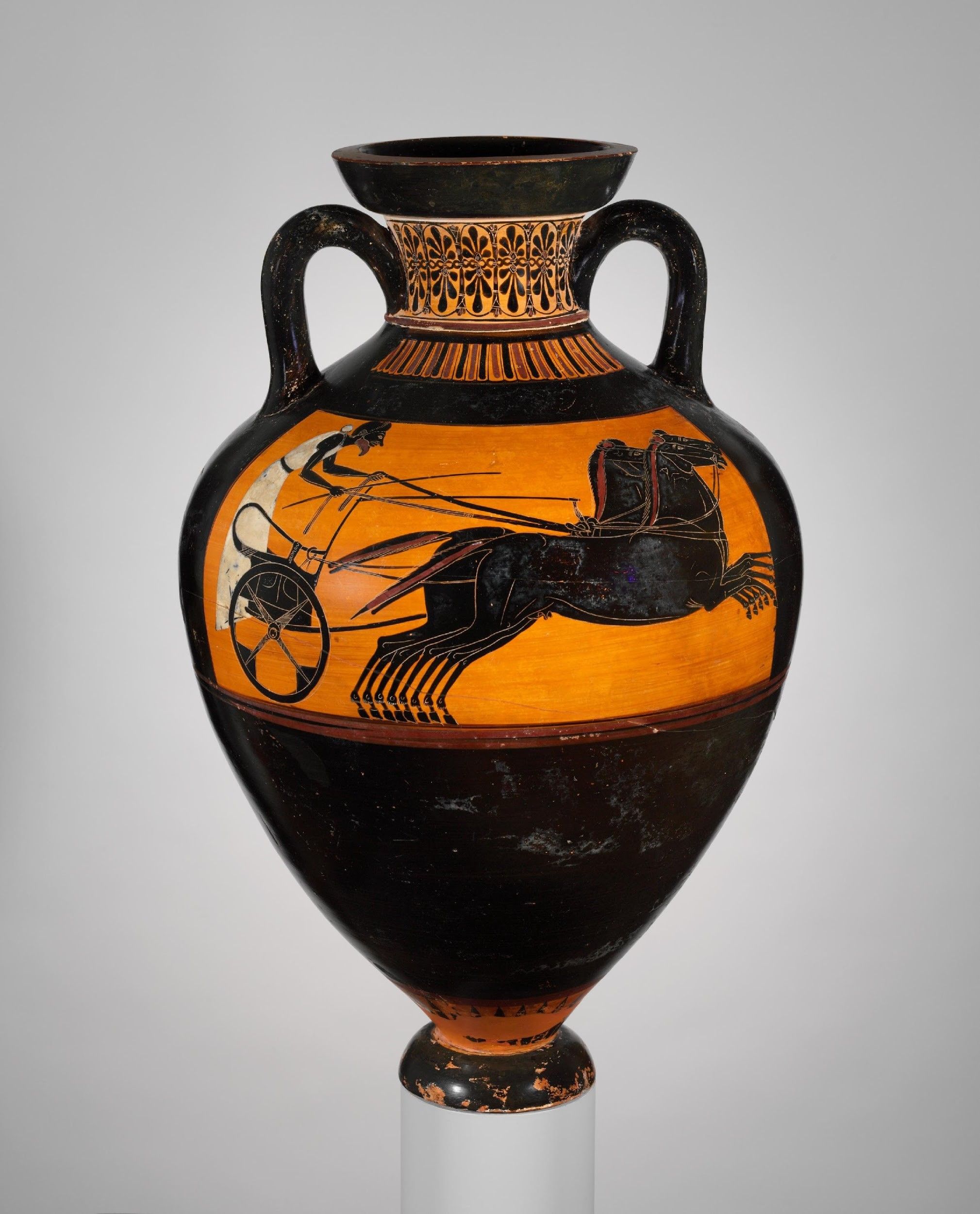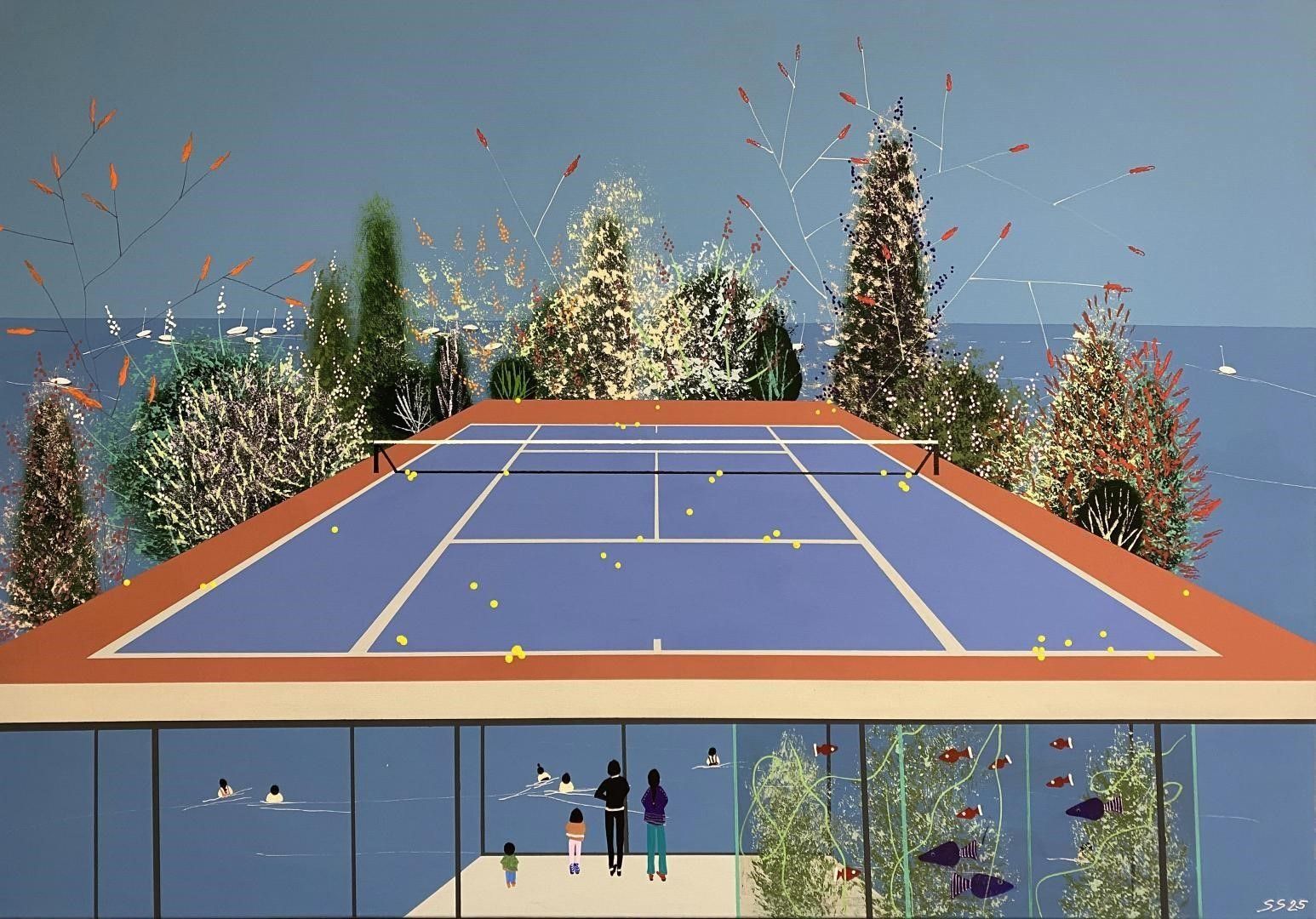The Football Odyssey: Between Memory and Myth
Cameroon’s legendary goalkeeper, N'Kono - the man that inspired Gianluigi Buffon. Credit: Bob Thomas Sports Photography via Getty Images.
In 1990, in the heart of Milan, a twelve-year-old Italian boy watched with his friends a football miracle: Cameroon defeats Maradona. However, the boy did not pay attention to who scored the goal, but to the one who kept his team steady with only nine players, against the legends from the Tango nation. That goalkeeper, who appeared to him like the heroes of epics, standing tall between the posts, was Thomas N'Kono. And from that moment, Gianluigi Buffon changed his favored position from midfielder to goalkeeper, to later become a legend himself, as if carrying that moment forward.
It is a story that echoes the tale of Theseus when he saw Heracles in his grandfather’s palace and chose to follow in his path of danger and glory. Both the Italian boy and the Greek boy saw in those men not just a person, but a road worth following. And that is when a legend is born: when fleeting moments are etched in us – forever.
I began with these stories for one reason: to ask why we choose to imbue them with such admiration and emotion, wrapping them in meanings far beyond the events themselves? This question points toward a deeper truth, especially when it comes to football. We do not just watch the game; we mythologize it, and those who play it. But why?
Is it because people today suffer from a weakened spiritual connection?
Is it to feel a sense of belonging?
Or is it because football’s icons shield our memories, and without the myth, our memories might feel hollow?
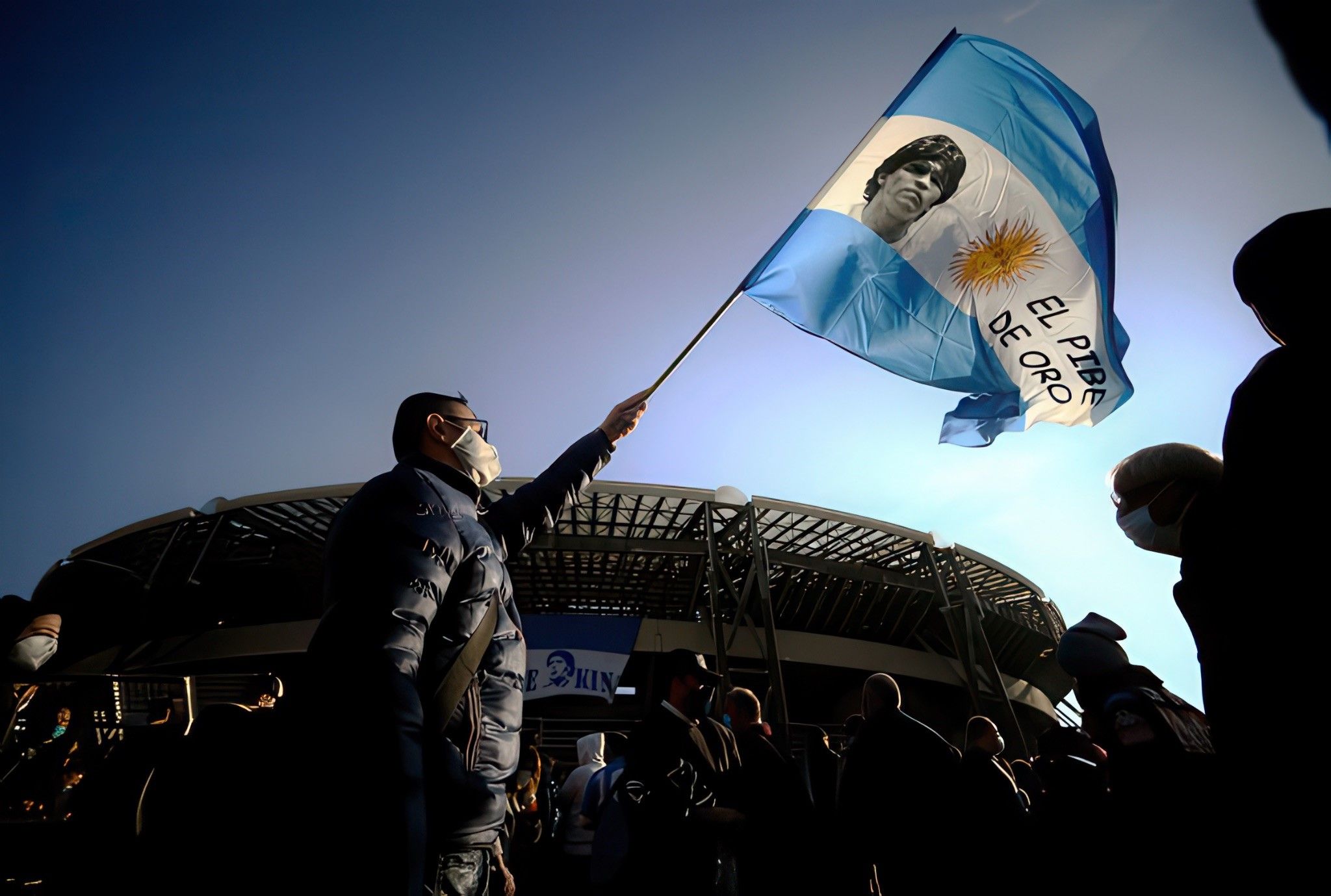
After Maradona’s death, an Italian fan holds a flag with his image. Credit: FILIPPO MONTEFORTE/AFP via Getty Images.
Few are better equipped to answer that question than Roland Barthes, the French semiotician (a specialist who studies signs and meanings), who explored and expanded the meanings of myths in modern society. Barthes defines myth as a “system of communication’’, a ‘’message’’, or a ‘’mode of signification.” Myth, he argues, does not erase reality, but refines it. It reinterprets the event so that it appears in its ideal image, not necessarily in its full truth.
Maradona, in this context, is a living example of what Barthes described. A genius and chaotic player, he experienced towering highs and devastating lows, and was far from a picture of perfection. Yet society did not see him as ordinary; he became a symbol. In Argentina, he was the "Hand of God,” a moment seen by many as symbolic revenge after the Falklands War. In poor and marginalized Naples, he became a near-deity, a symbol of rebellion against the dominance of the wealthy north. The image of Maradona the man faded, replaced by the legend that interpreted even his flaws as signs of sincerity and closeness to the people.
As Barthes saw it, mythical narratives overshadowed reality and transformed a historical fact into a natural destiny, as if Maradona had not been born a footballer, but a savior of the people.
But what is more striking is that even those who never witnessed such moments came to venerate the legends behind them. A child in a distant corner of the world calls Pelé a legend, even though he never saw him play. Here, Eric Hobsbawm’s idea of “invented traditions” becomes useful: many of the emotional certainties we live by are of recent origin, but through repetition, they gain weight of age and are treated as absolute truths.
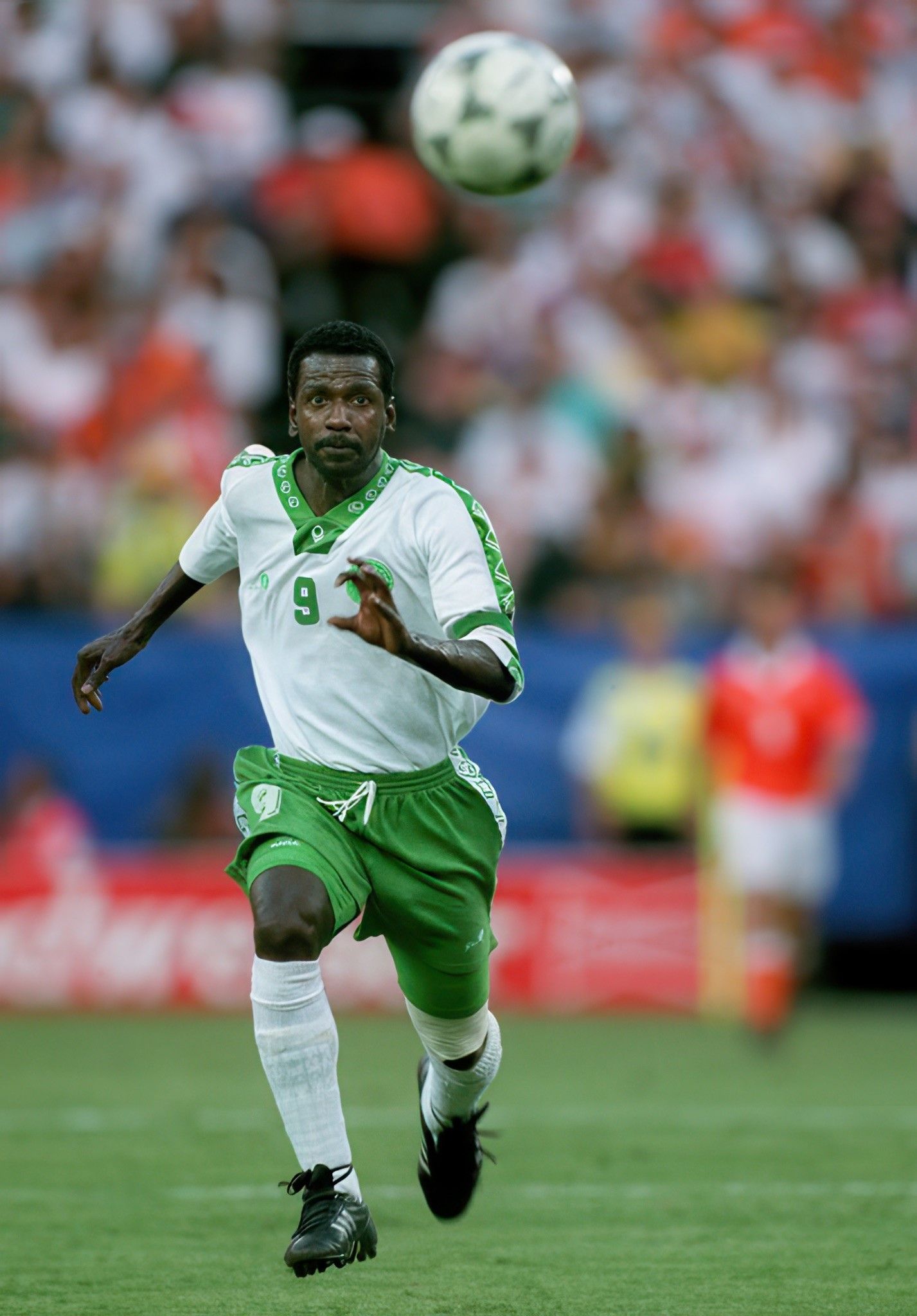
Majed Abdullah in the 1994 World Cup. Credit: Richard Sellers via Getty Images.
When we speak of Majed Abdullah or Youssef Al-Thunayan, we almost see them standing toe-to-toe with the world’s greatest players, even though we have little that proves this certainty. In fact, we create phrases that frame them in legend: “A PlayStation player in the Atari era” or “Born on the wrong continent.” Expressions that defy logic, yet satisfy a collective need for someone to represent us, someone onto whom we project what our own feet could not achieve. Not deception, but consolation.
In a time of repeated footballing disappointments, we cling to what remains in memory and immortalize it. This does not mean that these legends are false, but rather that their truth is not measured only by what is provable. As Hobsbawm put it, “Traditions are responses to new situations that take the form of invoking an ancient past.” In other words, we create legends when reality no longer feels sufficient.
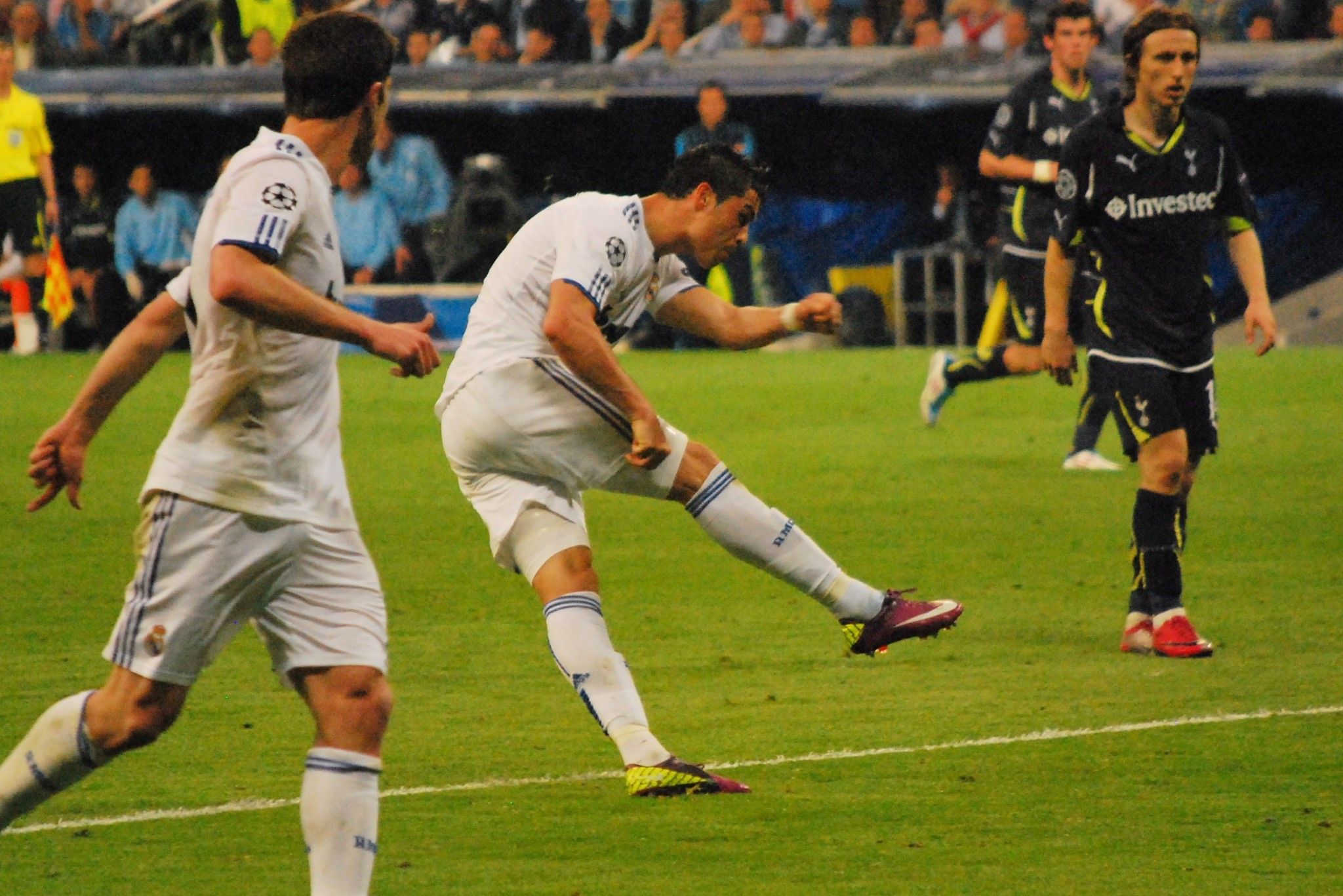
Christiano Ronaldo in the decisive moment of netting the Goal! Credit: Jan S0L0, licensed under CC BY-SA 2.0 via Wikimedia Commons.
So, it’s not just about the player, but the journey he undertakes. Here we have Joseph Campbell, who traced the “hero’s journey” in mythology: from the call to adventure, trials and challenges, and a return with wisdom. This is exactly what we see in Messi and Ronaldo, two legends on opposite paths:
● Ronaldo: the self-made hero, who rose from nothing, forging his path with iron will.
● Messi: The chosen child, the gifted one, who fought to protect his purity in a tainted world.
One represents ambition, the other a miracle. And like many legends, neither is complete without a rival. That is why their fans continue to argue, not just over players, but over stories, over meanings they choose to believe in.
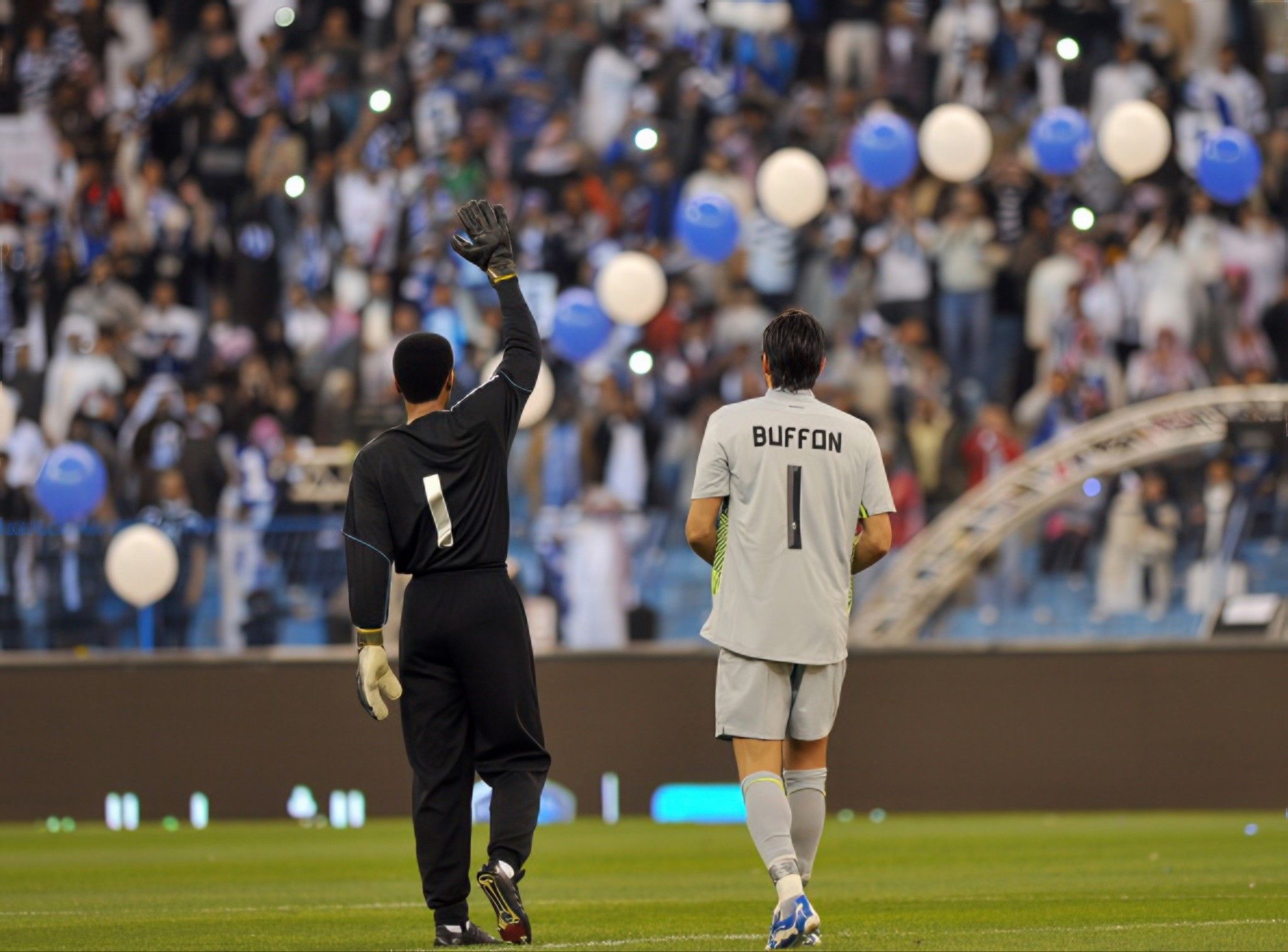
Buffon meets Mohammed Al-Deayea at the latter’s retirement match. Credit: Fayez Nureldine/AFP via Getty Images.
The most transparent moments are those in which Buffon, after all the glory, still remembers N'Kono. I, too, went back to search for that glow and found N'Kono to be a good goalkeeper, no better than what Mohammed Al-Deayea, for example, had offered. But N'Kono appeared to Buffon at the right moment, at a fragile stage of formation, when even the shadow of a man can stand in for a legend.
Perhaps this is what makes football, as Simon Critchley suggests, more than a sport. It is a social ritual that performs the role of myth. When we chant for a player, we are chanting for our disappointments and our hopes, our chaos and our small triumphs. And when we immortalize a player, we are not describing his talent, but recording the moment we touched meaning.
Legends are not falsehoods, but another language through which we understand the world. And when we repeat the names of Pelé, Maradona, Majed, Al-Thunayan, Messi, Ronaldo, we are not just recalling those who played well, but those who lit something in us that we were on the verge of losing.
